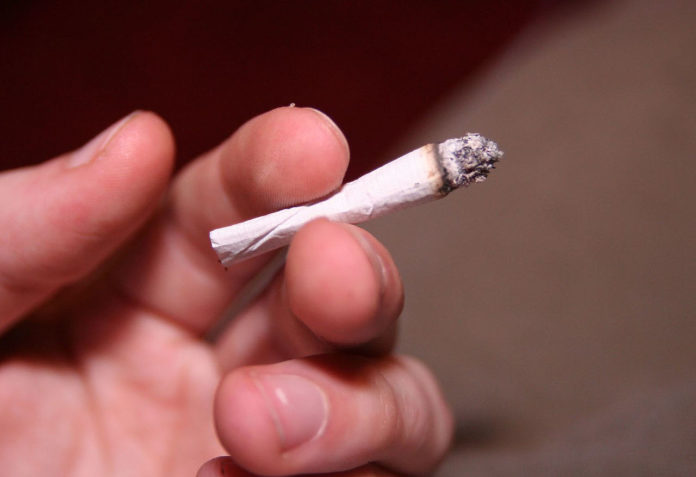The move, say doctors, researchers and anti-tobacco activists would also reduce consumption of tobacco
Public health groups in India along with doctors and economists have urged the Group of Ministers (GOM) in the GST Council to increase cess on tobacco products.
This they say, could be one way of raising funds to address the crisis in Kerala following the devastating floods.
WHO recommends that countries impose tobacco excise taxes that amount to at least 75% or more of the retail price.
This is to achieve the dual objective of reducing tobacco use and increasing government revenue. The overall tax rate on all tobacco products in India is still low very compared to other middle-income countries including those in South Asia.
“IMPOSING ADDITIONAL CESS ON ALL TOBACCO PRODUCTS, INCLUDING BIDIS, WILL BE A HUGE WIN FOR PUBLIC HEALTH AND REVENUE GENERATION.”
In spite of industry claims to the contrary, GST has made no significant increase in the tax burden of tobacco products, especially cigarettes and has in fact made all products more affordable. Tax burden on bidis post-GST is only 22% compared to 53% for cigarettes and about 60% for smokeless tobacco. All of these are well below the WHO recommended rate of 75%.
According to Dr Rijo John, Economist & Health Policy Analyst, “Compensation cess constitutes more than two thirds of the total tax revenue from cigarettes. As these cesses were not revised for more than a year, cigarettes have become much more affordable compared to the time GST was implemented and it warrants significant upward revision of cess rates applied on cigarettes.’’
It is critical that the 28% GST rate category be retained for demerit/sin goods such as tobacco. This serves two purposes, as it firstly sends out a strong public health message discouraging the consumption of sin goods.
Secondly, having a separate sin tax category decreases the pressure on the other three rate bands which are applicable to essential commodities allowing the government to have a relatively lower standard GST rates for those items. Since tobacco products are relatively less price elastic, a high GST rate on them would not lead to loss of revenue but instead increase the revenue.
“There is ample evidence about bidis being the killer and not the pleasure of the poor. It should be made unaffordable for the poorto save them from a lifetime of misery and suffering”, says Dr. Harit Chaturvedi, Chairman, Surgical Oncology, Max Health Care.
Since tobacco taxes are particularly effective in reducing tobacco use among vulnerable populations, higher taxes on bidis will protect India’s weakest strata. It is thus ironical that bidis unlike cigarettes are not classified as a “sin” product under GST even though it is causing health and economic harms to millions of poor Indians.
The total economic costs attributable to bidi smoking from all diseases and deaths in the year 2017 for persons aged 30-69 years amounted to INR 805.5 billion (USD 12.4 billion) while the excise tax revenue from bidi was only INR 4.2 billion in 2017 which is only 0.5% of this costs.
“Imposing additional cess on all tobacco products, including bidis, will be a huge win for public health and revenue generation. This move will provide much needed relief to the people of Kerala while motivating millions of tobacco users to quit and preventing youngsters from initiating tobacco use,”said Bhavna B Mukhopadhyay, Chief Executive, Voluntary Health Association of India.


